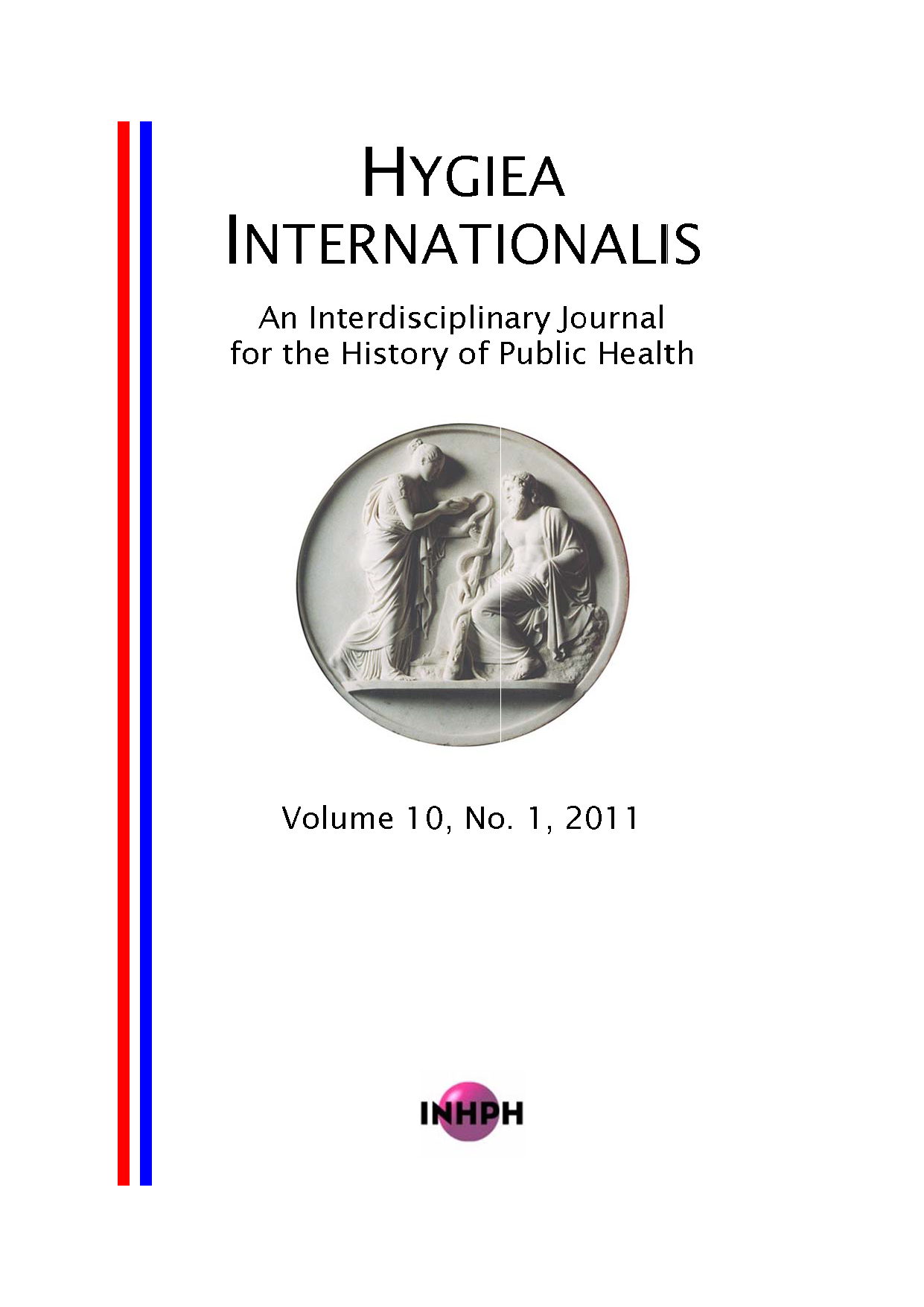The Arrival and Diffusion of Academic Medicine in Rural Sweden
The Case of the Sundsvall Region in the late Nineteenth Century
DOI:
https://doi.org/10.3384/hygiea.1403-8668.111017Keywords:
Diffusion, Midwifery, Rural Medicine, Sweden, Trust, Social NetworksAbstract
Midwives working in rural 19th-cetnruy Swedish parishes were essential to the introduction and acceptance of academic medicine. They were typically highly skilled and the full support of the state but numerous obstacles confronted them. None was greater than the struggle to gain the trust of local women and their families. This study demonstrates that midwives’ ability to attract expectant mother away from traditional help-women depended less upon their age, level of skill or social background than it did upon the public’s assessment of their abilities. News spread quickly if a midwife had used her skills to save a life or lives, or had attended a birth that had resulted in the death of the infant or mother. The strength of social networks either encouraged other women to call upon the services of that midwife or, alternatively, caused them to reassess the level of trust that they had bestowed upon her.Downloads
Published
2011-01-24
How to Cite
Curtis, S. (2011). The Arrival and Diffusion of Academic Medicine in Rural Sweden: The Case of the Sundsvall Region in the late Nineteenth Century. Hygiea Internationalis: An Interdisciplinary Journal for the History of Public Health, 10(1), 7–32. https://doi.org/10.3384/hygiea.1403-8668.111017
Issue
Section
Articles
License

This work is licensed under a Creative Commons Attribution-NonCommercial 4.0 International License.






